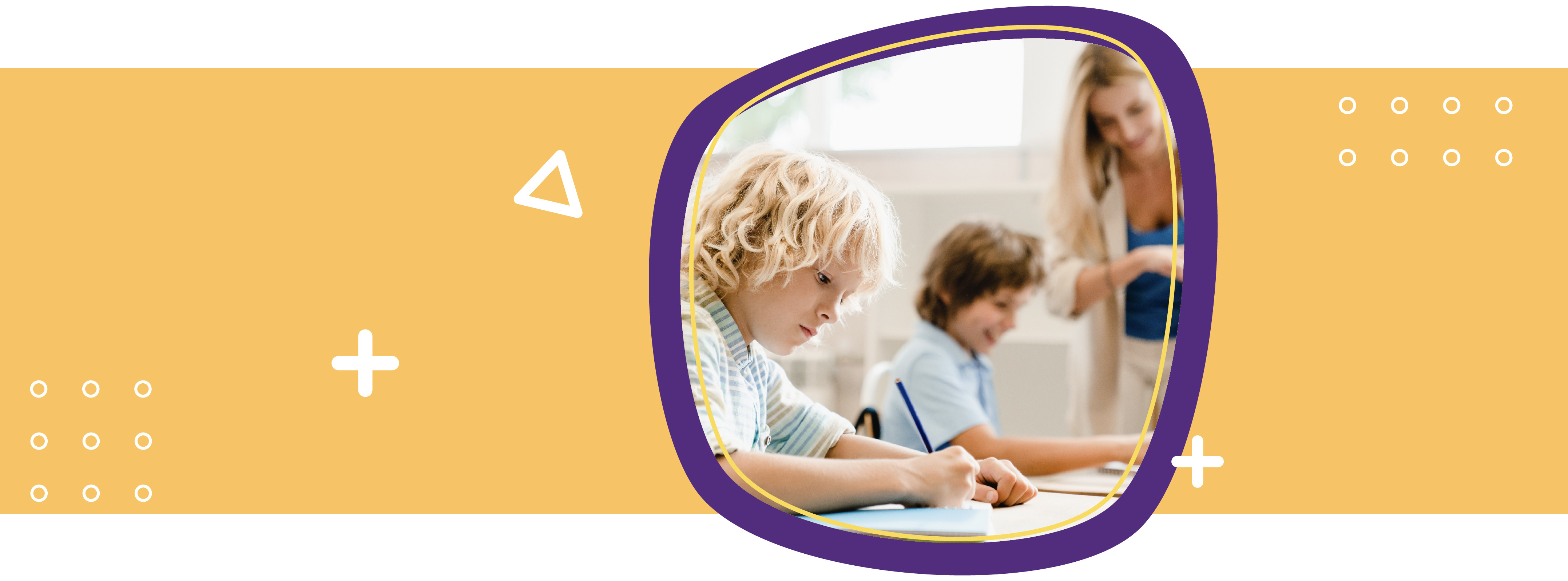When we observe children in our care, whether in the classroom, playground, or at home, we catch a glimpse of their world. They are exploring, questioning, and discovering the world around them. But how do children actually develop their ability to think, reason, and understand?
Jean Piaget, a Swiss developmental psychologist, offered one of the most influential theories in child development: the Theory of Cognitive Development. His work has profoundly shaped how educators and families understand learning and has inspired child-led, developmentally appropriate practices that are widely used today.
In this article, we’ll dive into Piaget’s theory in a way that’s easy to understand and relevant to your everyday interactions with children. Whether you’re a parent, teacher, or caregiver, Piaget’s insights can help you support children's learning in thoughtful, meaningful ways.
Behind the Theory: Jean Piaget
Jean Piaget (1896–1980) began his career in biology but quickly became fascinated with how children think. His research with his own children and others led him to believe that children don’t just acquire more knowledge as they grow, they actually change the way they think.
Piaget proposed that children move through four universal, sequential stages of cognitive development, each marked by new abilities and ways of understanding the world. He emphasized that children are active learners, constructing their understanding through hands-on experiences rather than passively absorbing information.
The Four Stages of Cognitive Development
Let’s explore Piaget’s four stages, the characteristics of each, and how we can support children during these phases.
1. Sensorimotor Stage (Birth to ~2 Years)
Key Characteristics:
- Learning through senses and movement
- Developing object permanence (understanding that objects exist even when not seen)
- Beginning of intentional actions and simple problem-solving
What You’ll See:
Babies explore by mouthing toys, shaking rattles, and crawling toward interesting sounds. They repeat actions to see what happens (e.g., dropping a spoon just to watch you pick it up, again!).
Supporting This Stage:
- Provide safe, sensory-rich environments
- Offer open-ended objects for exploration
- Narrate your actions (“Now I’m changing your diaper”) to build early communication
- Play peek-a-boo to support understanding of object permanence
2. Preoperational Stage (~2 to 7 Years)
Key Characteristics:
- Use of language and imagination
- Egocentric thinking (difficulty seeing others’ perspectives)
- Symbolic play and pretend
- Difficulty with logic or understanding cause and effect
What You’ll See:
Children in this stage love to pretend. A block becomes a car, a stick becomes a wand. They may believe the moon follows them or that their thoughts can cause events (“It rained because I was sad”).
Supporting This Stage:
- Encourage imaginative play
- Listen actively and validate their ideas, even if they seem magical
- Use storytelling and visual aids to introduce new concepts
- Don’t expect logical thinking yet; focus on exploration and emotional connection
3. Concrete Operational Stage (~7 to 11 Years)
Key Characteristics:
- Logical thinking about concrete objects and experiences
- Understanding of conservation (e.g., quantity remains the same even if shape changes)
- Less egocentric, can understand other perspectives
- Categorization and sequencing skills emerge
What You’ll See:
Children begin to solve problems more logically, though they still struggle with abstract ideas. They might enjoy science experiments, organizing toys by category, or helping measure ingredients in cooking.
Supporting This Stage:
- Engage them in hands-on learning (cooking, building, nature exploration)
- Use real-life examples to explain abstract ideas
- Ask open-ended questions to encourage reasoning
- Involve them in collaborative decision-making
4. Formal Operational Stage (12 Years and Up)
Key Characteristics:
- Abstract thinking and hypothetical reasoning
- Ability to plan, debate, and consider moral or philosophical questions
- Metacognition (thinking about thinking) develops
What You’ll See:
Teens begin to understand complex concepts like justice, identity, and ethics. They can reflect on their own thinking, understand satire or irony, and form personal values.
Supporting This Stage:
- Encourage critical thinking through discussion
- Provide opportunities to explore real-world issues
- Support their need for autonomy and identity exploration
- Use respectful dialogue to challenge ideas and stimulate deeper thought
Core Concepts in Piaget’s Theory
In addition to the stages, Piaget introduced key concepts that are useful for understanding how children learn:
1. Schemas
Schemas are mental models or frameworks for understanding the world. A baby’s schema for “dog” might initially include all four-legged animals. With new experiences, these schemas become more refined.
2. Assimilation and Accommodation
- Assimilation: Fitting new information into an existing schema
- Accommodation: Changing the schema to fit new information
For example, a child may initially call a cow a “dog” (assimilation). After learning that cows and dogs are different, they adjust their schema (accommodation).
3. Equilibration
Equilibration is the balance between assimilation and accommodation. It drives learning as children seek to make sense of new experiences without too much confusion or contradiction.
The Influential Theory
Even though Piaget’s theory emerged nearly a century ago, it continues to influence modern education and parenting for several reasons:
1. Developmentally Appropriate Practice
Piaget reminds us that children are not miniature adults. Their thinking evolves over time, and expectations should match their stage. This helps avoid frustration, for both children and adults.
2. Child-Centered Learning
His work inspired child-led approaches that value play, exploration, and hands-on learning. This aligns beautifully with the principles behind high-quality early childhood education.
3. Respecting Individual Pace
Piaget acknowledged that while the stages are universal, the timing can vary. Every child develops at their own pace, and that’s okay.
Practical Tips for Families and Educators
Here are ways you can apply Piaget’s insights in real life:
At Home:
- Rotate toys and materials to encourage curiosity and problem-solving
- Ask questions that provoke thinking rather than giving answers
- Involve children in everyday tasks (measuring, sorting, decision-making)
- Be patient with repetition, it’s how children learn
In the Classroom:
- Observe and document children’s play to understand their thinking
- Create an environment that invites experimentation
- Allow time for reflection and revisiting ideas
- Use provocations (like a mysterious object or a surprising photo) to spark inquiry
Criticisms and Updates to Piaget’s Work
While groundbreaking, Piaget’s theory has received critique and has evolved over time. Some points to consider:
- Underestimating Young Children: Later research suggests that children may develop certain cognitive abilities earlier than Piaget thought, especially with adult support.
- Social and Cultural Contexts: Piaget focused more on individual development, while contemporary theorists like Vygotsky emphasize the importance of social interaction and culture.
- Not Linear for All: Real-life development can be messier than stage theories suggest, children may show abilities from multiple stages at once.
Still, Piaget’s core message, that children are active, curious learners, remains central to how we understand development today.
How Parent App Supports Piagetian Learning
At Parent App, we believe in developmentally appropriate practice grounded in research. Our platform is designed to:
Whether you’re exploring sensory play with toddlers or engaging older children in project work, Parent App offers the scaffolding you need to honor and respond to each child’s unique path.
Conclusion: Embracing the Journey
Piaget gave us a roadmap to better understand how children make sense of their world. But as any parent or educator knows, development doesn’t follow a script. What matters most is our ability to listen, observe, and respond with curiosity, compassion, and flexibility.
As you support the children in your care, remember: each question, each moment of play, and each “why?” is a step on a remarkable cognitive journey. Your role is not to rush them to answers, but to walk beside them as they discover, wonder, and grow.
Interested in seeing how Parent can support you and your centre?
Let’s talk — book a quick, no obligation, walkthrough with our team
If you found this post helpful, explore our free webinars, activity library, and newsletter for more support in your early years journey.
Billing, Invoicing Automation & Smart Finances
Communication & Engagement
Child Development & Progress
Waitlist, Forms & Attendance
Effortless Team Management
Daily Updates That Matter
Templates & Printables
Blogs
Webinars
Case Studies & Testimonials
FAQs
Help Center



